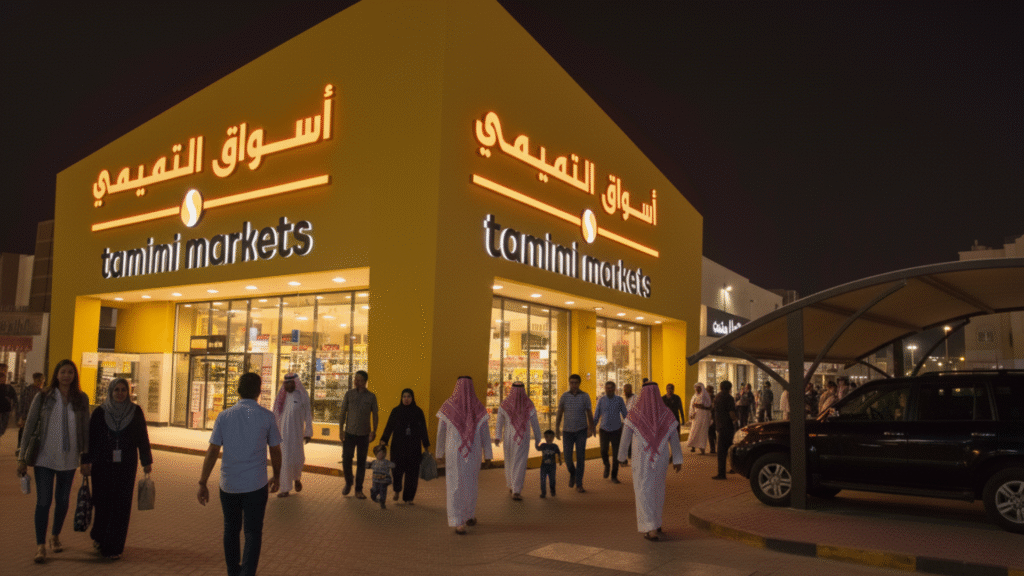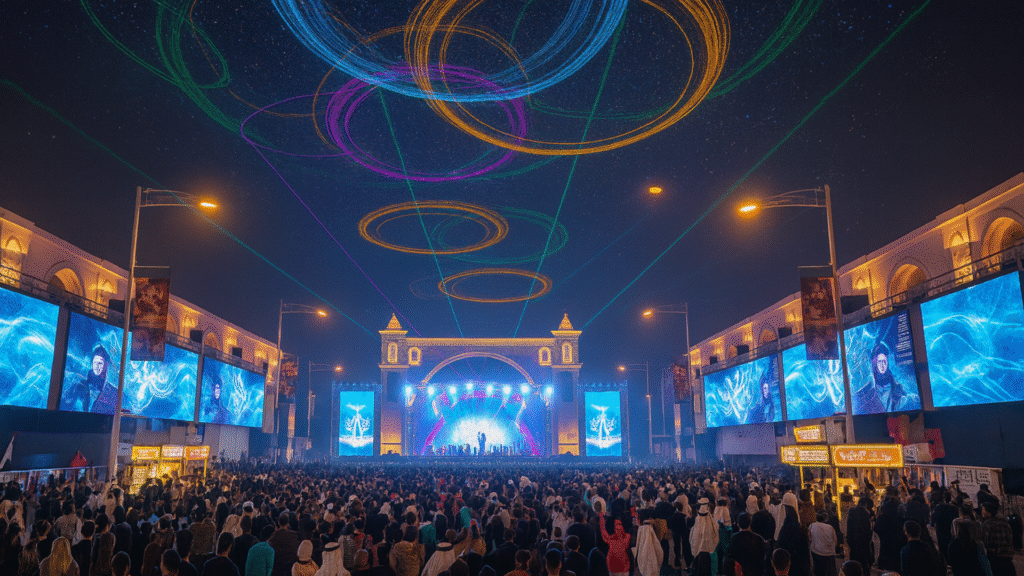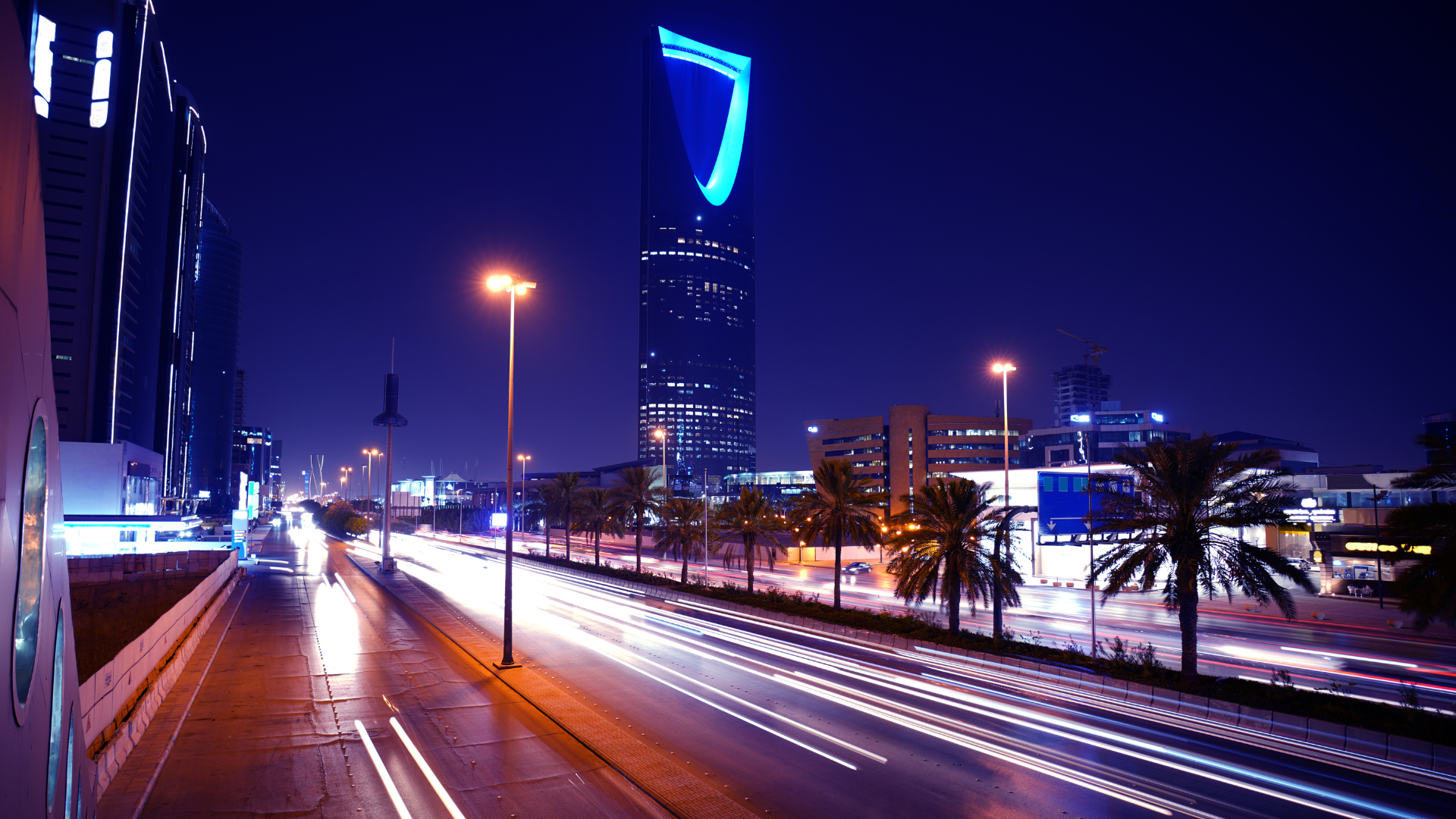Expatriates in Riyadh – Your Complete Living Guide
Expatriates in Riyadh discover a city unlike anywhere else, where ancient souqs meet modern skyscrapers. For expatriates in Riyadh, this blend of tradition and innovation creates a unique experience attracting international talent from over 180 nationalities.
Living in this city lets you witness Saudi Arabia’s incredible changes as they happen. Expatriates in Riyadh find themselves growing in their careers and enriching their personal lives every day.
Table of Contents
What Expatriates in Riyadh Really Experience
When you move to Riyadh, you’ll discover a fast-growing city with a thriving community. Expatriates in Riyadh become part of something truly special here.
Knowing what to expect helps you settle in smoothly.
How Vision 2030 Transforms Every Aspect of Expatriate Life
Vision 2030, launched in 2016 by Crown Prince Mohammed bin Salman, fundamentally shapes life for expatriates in Riyadh. The initiative delivered hundreds of new entertainment venues since 2019, including cinemas reopened in 2018 after 35 years.
Infrastructure investment exceeds $500 billion, with the Riyadh Metro and highway upgrades significantly reducing travel times. International restaurants increased from few hundred in 2016 to over 1,000 by 2024.
Quality of life improvements are tangible. The city hosts multiple internationally accredited hospitals including Kingdom Hospital and Dr. Sulaiman Al Habib Hospital, over 60 international schools, and modern housing with 1 Gbps fiber internet. Most expatriates in Riyadh notice these improvements within their first month.
Pre-Move Essentials: What Expatriates in Riyadh Prepare Before Arrival
Tens of thousands of international workers arrive annually. Success requires proper documentation and cultural preparation that expatriates in Riyadh emphasize as critical.
Getting Your Documentation Right: Visas, Permits & Digital Processing
Visas: Work visas (Iqama) process within 7-10 business days through Ministry of Interior’s Absher platform. Tourist visas for 49 countries process within 24 hours online, though timelines vary. Family visit visas range from 3 months to 1 year. Investment visas require 500,000 SAR minimum capital. These requirements affect all expatriates in Riyadh regardless of nationality.
Digital Processing: Absher manages residence permits (3-5 business days). You’ll need to register your biometrics through Muqeem within 30 days of arrival. For professional work, your salary must be at least 4,000 SAR per month.
You also have 90 days to complete a health screening that checks for communicable diseases.
Understanding Saudi Culture: What You Must Know Before Arriving
Women typically wear abayas in public spaces, though head covering regulations relaxed. Men avoid shorts and sleeveless shirts publicly. Prayer times close businesses briefly five times daily (15-20 minutes). Successful expatriates in Riyadh adapt to these rhythms quickly.
Language: While English is widely spoken, experienced expatriates in Riyadh recommend learning basic Arabic: “As-salamu alaykum” (greeting), “Shukran” (thank you), “Min fadlak” (please). Arabic classes cost 100-200 SAR hourly.
Smart Packing Strategy: What to Bring vs. Buy in Riyadh
Electronics cost 20-30% more in Saudi Arabia—bring laptops, tablets, smartphones. Saudi Arabia uses 220V with Type G plugs. Bring six-month medication supply in original containers.
Expatriates in Riyadh need passport (six months validity), visa documentation, Iqama, birth/marriage certificates, work contracts, medical records, and educational diplomas authenticated by home country and Saudi embassy. Create digital backups in cloud storage.
Where to Live: Housing Solutions for Expatriates in Riyadh
Finding accommodation ranks among top priorities for expatriates in Riyadh. The market offers diverse options with prices based on 2024-2025 rates.
Top 5 Neighborhoods: Where Expats Choose to Settle
Diplomatic Quarter: Premium security-conscious choice. Villas 150,000-300,000 SAR annually with embassies, international schools, exclusive clubs. Senior expatriates in Riyadh choose this for unparalleled security and amenities.
Al Yasmin, Malqa, Narjis: Modern northern developments. 60,000-120,000 SAR apartments, 100,000-180,000 SAR villas. Schools, hospitals, shopping accessible.
Al Nakheel: Family-oriented with parks and international schools. 80,000-140,000 SAR annually. Attracts expatriates in Riyadh prioritizing children’s activities.
Al Olaya: Business district heart. 50,000-100,000 SAR apartments. Walkable cafés, restaurants, entertainment.
Al Malaz: Authentic Saudi experience. 40,000-90,000 SAR with traditional souqs and modern conveniences.
Navigating Rentals: Agents, Leases & What to Negotiate
Agents charge 1% annual rent by law (non-negotiable). For 100,000 SAR lease, pay 1,000 SAR one-time. Always use Ejar platform licensed agents. Smart expatriates in Riyadh negotiate maintenance responsibilities, payment schedules, early termination penalties carefully.
Most landlords expect annual or bi-annual upfront payment. Compounds (80,000-180,000 SAR) offer pools, gyms, security, instant community. Standalone properties cost 20-30% less but lack amenities.
Your First Week: Fast-Track Setup for Utilities & Internet
Electricity: SEC connects power within 2-3 business days. 200-600 SAR monthly depending on usage.
Internet: STC, Mobily, Zain, ITC offer fiber up to 1 Gbps. Installation 48-72 hours. 150-400 SAR monthly.
Water: National Water Company. 50-150 SAR monthly.
Gas: GASCO cylinders delivered 2-4 hours. 40-60 SAR, lasts 4-8 weeks. Most expatriates in Riyadh complete setup within first week.
Daily Life Decoded: Your Practical Navigation Guide
Mastering routines helps expatriates in Riyadh settle comfortably. Transportation, shopping, services become second nature within months.
Getting Around: Metro, Uber, Driving & Traffic Reality
Riyadh Metro: Six-line driverless system with 85 stations opened late 2024, spanning 176 kilometers per Royal Commission for Riyadh City. Blue Line connects airport to downtown. Single trips 4-6 SAR, monthly passes 200 SAR. Download Darb App for real-time updates. Avoid rush hours (7-9 AM, 5-7 PM).
Ride-sharing: Uber and Careem average under 5-minute waits. 15km journeys cost 25-40 SAR. Savvy expatriates in Riyadh stick with apps versus traditional taxis that often don’t use meters.
Driving: Used cars 30,000-80,000 SAR. Traffic during rush hours creates significant delays on King Fahd Road and Olaya Street. Always check Google Maps or Waze.
Shopping Smart: Markets, Malls & Saving Money on Groceries

Fresh Produce: Al Owais Souq for bargaining (20-30% below asking). Al Rabwah Central Produce Market wholesale (5 AM-noon). Riyadh Gallery Farmers Market Fridays for organic.
Supermarkets: Panda, Danube, Carrefour, Tamimi stock local and international brands. Imported items cost 30-50% premiums. All close briefly for five daily prayers.
Malls: Kingdom Centre, Riyadh Gallery, Granada Center, Panorama Mall combine shopping with entertainment.
Essential Services: Healthcare, Banking & What You’ll Need
Healthcare: Multiple JCI-accredited hospitals. Employer-sponsored insurance mandatory per Ministry of Human Resources regulations. Doctor visits 10-20 SAR co-pays. Healthcare quality impresses most expatriates in Riyadh with appointments within days.
Banking: Al Rajhi Bank, Saudi National Bank, Riyad Bank, Alinma Bank process accounts within 2-3 business days. Requires Iqama, passport, employment contract, salary certificate. Banking hours Saturday-Thursday 9:30 AM-4:30 PM.
Building Your Career: Working as Expatriates in Riyadh
Understanding workplace culture significantly impacts career success for expatriates in Riyadh. Saudi business culture reflects Islamic values and Arab traditions.
Saudi Business Culture: 7 Unwritten Rules for Success
Use formal titles (“Doctor,” “Engineer,” “Sheikh”). Dress conservatively. Meetings begin with 10-15 minute greetings about family and health—relationship-building precedes business.
Communication tends indirect; save difficult conversations for private settings. This approach builds stronger relationships that expatriates in Riyadh find essential for long-term success.
Women at Work: Major Changes Since 2018
Women’s workforce participation increased from 20% (2018) to over 35% per General Authority for Statistics. Landmark 2018 reforms allowed women to drive, attend sporting events, work in previously restricted sectors.
Professional services, healthcare, education, technology sectors most progressive. Handshakes between genders only if woman initiates.
Professional Networks: Where & How to Connect in Riyadh
You’ll find active chapters of the American Business Council, British Business Group, and European-Saudi Business Council right here in Riyadh. The Riyadh Chamber of Commerce holds monthly networking events you can attend.
International hotels regularly host business breakfasts too. When you network actively as expatriates in Riyadh, you’ll see your career move forward faster.
Plus, LinkedIn connects you with over 5 million Saudi users.
Avoiding Burnout: Practical Work-Life Balance Tactics
Standard hours Saturday-Thursday 8 AM-5 PM. During Ramadan, hours reduce to 6 daily for Muslims. Smart workers set clear boundaries while remaining flexible. Social clubs, sports leagues, cultural centers help maintain balance.
Riyadh’s Transformation: Living Through Historic Change
After exploring the cultural and social aspects of life in Riyadh, it is equally important to understand the climate conditions that shape the daily lives of residents and visitors.
Vision 2030 Reality: $500 Billion in Visible Progress
Vision 2030 aims to welcome 100 million visitors each year by 2030—up from just 16 million in 2019. Once the metro system is fully running, its 176 kilometers of track will carry 3.6 million people daily.
King Salman Park spans 13.4 square kilometers under construction. Utility reliability improved dramatically with new power plants and water infrastructure.
Balancing Respect for Tradition With Modern Lifestyle
Masmak Fortress (1865) stands near Kingdom Centre Tower (302m). Successful expats dress modestly, respect prayer times, avoid public affection, abstain from alcohol (strictly prohibited).
During Ramadan, eating publicly during daylight is illegal. Wise expatriates in Riyadh observe customs to avoid legal complications.
Climate Survival Guide: Extreme Heat & Pleasant Seasons
Summer: Summer months from June to August see temperatures climb above 40°C (104°F), sometimes reaching 48°C according to the National Center for Meteorology. You’ll want to plan any outdoor activities before 9 AM or after 8 PM during this time. Climate adaptation challenges new expatriates in Riyadh during first summer, typically taking 2-3 months.
Pleasant Season: October-March offers 15-30°C. Winter evenings drop to 8-10°C. Outdoor markets, festivals, concerts flourish when expatriates in Riyadh comfortably explore.
Entertainment Explosion: What Expatriates in Riyadh Enjoy Today

Entertainment options since 2018-2019 transformed life for expatriates in Riyadh dramatically.
Riyadh Season: World-Class Events October to March
Riyadh Season (launched 2019) attracted over 15 million visitors in 2023 with 8,500+ events per Saudi Commission for Tourism. Features Bruno Mars, Justin Bieber, Mariah Carey, Arabic stars.
Mohammed Abdo Arena holds 7,000+ with state-of-the-art acoustics. Boulevard Riyadh City offers permanent walkable entertainment district. Many expatriates in Riyadh frequent this for weekend activities.
Family Entertainment: Activities for All Ages
Kid-Friendly: KidZania (40+ activities), Al Hokair Time, Winter Wonderland ice skating, King Abdullah Park (318,000 sqm), Salam Park (312,000 sqm).
Cultural Venues: National Museum (8 exhibition halls with English signage), King Fahad Cultural Centre, Princess Nourah Theatre.
Dining Scene: Over 1,000 International Restaurants
Over 1,000 international restaurants by 2024. Fine dining: Texas de Brazil, Zuma, Nobu. Cuisines: Japanese, Italian, Indian, French, Lebanese, Korean, Thai, Vietnamese, Mexican. Traditional Saudi: kabsa, mandi, mutabbaq.
AMC, VOX, Muvi cinemas show Hollywood and Arabic films. Food diversity delights expatriates in Riyadh exploring cuisines.
Social Integration: Building Community as Expatriates in Riyadh
Social integration significantly affects satisfaction for expatriates in Riyadh. Active network builders report substantially higher quality of life.
Connecting Online & Offline: Meeting Fellow Expats
Facebook groups “Expats in Riyadh” host thousands. InterNations organizes monthly events. These platforms help new expatriates in Riyadh connect before arriving.
Clubs: Sports groups (running, cycling, golf, tennis), book clubs, photography clubs, nationality-based organizations (American Women’s Group established 1977, British Community Association). Parent networks organize playdates and share school information.
Cross-Cultural Friendships: Connecting With Local Saudis
Attend National Day celebrations (September 23rd), Arabic language exchanges, mixed sports leagues, volunteer during Ramadan. Many Saudis, particularly younger generations with international experience, welcome friendships.
Open-minded expatriates in Riyadh making genuine cultural efforts form strongest cross-cultural relationships.
Weekend Adventures: Day Trips & Social Activities
Day Trips: Edge of the World (90km northwest, 300-meter cliffs), Diriyah UNESCO World Heritage Site (20 minutes, restored Najdi architecture), Red Sand Dunes (dune bashing, camel rides), Ushaiger Heritage Village (200km northwest, historical buildings).
Social Events: Festivals, concerts, exhibitions nearly every weekend October-March per Riyadh Season calendar.
You might also find these useful:
- 7 Essential Khamis Mushait Facts for Expatriates to Thrive
- The Ultimate Guide to Riyadh Park: The Best Destination for Expatriates
- Transport General Authority: The Complete Expat Guide to Transportation in Saudi Arabia
- The Ultimate Step-By-Step Guide to Expatriates Jobs in Abha
- 7 Expert Ways to Find the Perfect Apartment for Rent in Riyadh for Expatriates
- Saudi Labor Law: The Ultimate Guide for Expatriates
- 5 Best Driver Jobs in Riyadh: Complete Salary, Visa & Application Guide
- The Complete Expatriate’s Guide to Domestic Workers in Saudi Arabia
- Driver Jobs in Saudi Arabia: Transform Your Career with 81% Market Growth & Premium Pay
- 7 Simple Steps to Get a Saudi driving license: Complete Guide for Expats
Frequently Asked Questions
What documents do expatriates in Riyadh need?
Passport (six months validity), Saudi visa, Iqama residence permit, employment contract, birth/marriage certificates authenticated by home country and Saudi embassy, medical records including vaccinations, educational diplomas.
How does Vision 2030 affect expats?
Delivered hundreds of entertainment venues since 2019, Metro system (late 2024), upgraded infrastructure, expanded cultural events, over 1,000 restaurants, social reforms (women driving 2018, cinemas, concerts), simplified e-government through Absher.
What are rental costs?
Diplomatic Quarter villas: 150,000-300,000 SAR. Northern developments apartments: 60,000-120,000 SAR, villas: 100,000-180,000 SAR. Al Nakheel: 80,000-140,000 SAR. Olaya: 50,000-100,000 SAR. Malaz: 40,000-90,000 SAR. Agent fees 1% by law. Annual/bi-annual upfront payment expected.
How do expats get around?
Metro: 6 lines, 85 stations, trips 4-6 SAR, monthly passes 200 SAR. Uber/Careem: under 5-minute waits, 15km costs 25-40 SAR. Used cars: 30,000-80,000 SAR. Check Google Maps/Waze for traffic.
Where do expats socialize?
Social clubs, business councils (ABC, BBG), nationality organizations, Facebook groups, InterNations, sports facilities (Diplomatic Quarter Sports Club, Dirab Golf Club), networking at international hotels, weekend festivals during Riyadh Season.
What’s the climate?
Summer (June-August): 40-48°C, outdoor activities before 9 AM or after 8 PM only. Pleasant season (October-March): 15-30°C, ideal exploring. Winter evenings: 8-10°C. Annual rainfall 100mm. Adaptation takes 2-3 months.
Can women work?
Yes. Participation increased from 20% (2018) to over 35%. Professional services, healthcare, education, technology sectors most progressive. 2018 reforms allowed driving, sporting events, previously restricted work sectors. Dress modestly, understand gender-segregation contexts.
What entertainment exists?
Riyadh Season festivals (October-March), concerts (Bruno Mars, Mariah Carey), modern cinemas (AMC, VOX, Muvi), over 1,000 restaurants, museums, parks (King Abdullah 318,000 sqm, Salam 312,000 sqm), malls, sports facilities, cultural venues year-round.
Conclusion: Thriving as Expatriates in Riyadh
Expatriates in Riyadh participate in one of the world’s most significant urban transformations. The city blends traditional Islamic and Arab values with modern lifestyle, creating opportunities for expatriates in Riyadh embracing both dimensions with cultural sensitivity. Vision 2030’s reforms continue reshaping the expatriate experience.
Success requires genuine openness and sincere cultural respect. The community represents over 180 nationalities, making integration rewarding. Whether for career advancement in technology, finance, healthcare, or personal growth, expats discover a constantly evolving city.
From Riyadh Season festivals and concerts to professional networking through business councils, international workers access unprecedented resources. The key is active engagement—join clubs, attend events, learn basic Arabic, build relationships with foreign residents and Saudi colleagues.
Tens of thousands of expatriates in Riyadh successfully built fulfilling lives here, particularly since Vision 2030 reforms accelerated transformation. You’re joining a dynamic community shaping the city’s future while creating your story in Saudi Arabia’s transforming capital.
The experiences and connections you develop as one of many expatriates in Riyadh will likely become highlights of your international career, offering unique insights into Middle Eastern business culture and Arab hospitality while witnessing historical reforms at unprecedented scale.
Sources
Royal Commission for Riyadh City (Metro specifications: Royal Commission for Riyadh City – Riyadh Metro, Ministry of Interior – Absher Platform, Muqeem Platform, Ministry of Human Resources and Social Development, Saudi Ministry of Health, Ministry of Foreign Affairs (MOFA), Zakat, Tax and Customs Authority, Saudi Electricity Company (SEC), National Water Company, Ejar Platform, Darb App (Riyadh Metro Real-Time Tracking), Vision 2030 Saudi Arabia, General Authority for Statistics, Joint Commission International (JCI), Al Rajhi Bank, Saudi National Bank (SNB), Riyad Bank, Saudi Food and Drug Authority (SFDA), Saudi National Center for Meteorology, Saudi Commission for Tourism, UNESCO – Diriyah World Heritage Site, King Abdullah Centre for Arabic Language, PropertyFinder Saudi Arabia, Bayut Saudi Arabia, Google Maps, Zomato.

